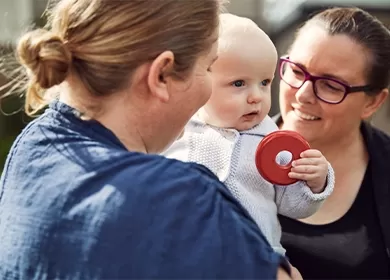Lifeblood announces changes to sexual activity rules for blood and plasma donation
More Australians will be able to donate blood and plasma following important changes to sexual activity eligibility rules confirmed by Australian Red Cross Lifeblood today.
Current donor rules in Australia prevent many gay and bisexual men and transgender women who have sex with men from giving blood or plasma if they have had sex in the past three months.
Lifeblood has been working to make blood and plasma donation more inclusive and accessible to as many people as possible, whilst maintaining the safety of the blood supply.
In the first of the rule changes, from Monday, 14 July 2025 Lifeblood will remove most sexual activity wait times for plasma donations.
Under this world-leading ‘plasma pathway’, most people, including gay and bisexual men, and anyone who takes PrEP[i], will be able to donate plasma without a wait period, providing they meet all other eligibility criteria. Extensive research and modelling show that there will be no impact to the safety of the plasma supply with this change.
Lifeblood’s Chief Medical Officer, Dr Jo Pink said with plasma now the donation type most needed by Australian patients, the change comes at an important time.
“We’re excited to be able to welcome more people from across the community into our donor centres from next month," said Dr Pink.
“With more than 600,0000 people estimated to be covered by the previous wait times, we now anticipate an extra 24,000 donors and 95,000 extra donations of plasma to be made each year.”
At the same time, Lifeblood has also been progressing changes to blood and platelets donation eligibility, with the Therapeutic Goods Administration (TGA) approving a submission to remove gender-based sexual activity rules.
Once implemented, all donors will be asked the same questions about their sexual activity, regardless of their gender or sexuality, and most people in a sexual relationship of 6 months or more with a single partner will be eligible to donate blood. In addition, most people with new or multiple partners will also be able to donate blood if they have not had anal sex in the last 3 months. The change will bring an end to men being asked if they’ve had sex with another man.
Unlike other countries with gender-neutral assessments, most people unable to donate blood under the updated gender-neutral rules – including because they are taking PrEP – will still be able to donate plasma in Australia without a wait time.
Dr Pink said the safety and well-being of patients who receive blood and plasma would always be foremost in Lifeblood’s decision-making.
“Our submission to change rules for blood donation included data that shows, for now, a 6-month wait is the safest option for Australian patients, but we are committed to reviewing this as more evidence becomes available.”
"There are many steps that Lifeblood needs to take before we can implement the new gender-neutral assessments, including working with state and territory governments to change the donor questionnaire. We hope to be able to implement this part of the changes next year."
Dr Pink said the changes announced today were the result of many years of research and hard work by Lifeblood’s clinical and research teams, as well as many LGBTQIA+ organisations and advocates who contributed to research advisory groups and committees, and our research collaborator, The Kirby Institute at UNSW Sydney.
“This is a significant milestone in being able to safely reduce wait times and make it easier for more people in the LGBTQIA+ community to donate," added Dr Pink.
“Blood safety is and always will be our top priority, but we know the current donation rules have been very difficult for many people in the LGBTQIA+ community. While they were put in place to ensure a safe blood supply in the past, we know that they’ve contributed to the stigma faced by the community.
“We hope as we move through the process of seeking to have both these changes introduced, that this will be a turning point for both Lifeblood and the LGBTQIA+ community.”
To donate blood and plasma, visit www.lifeblood.com.au or call 13 14 95.
Dash Heath-Paynter, CEO Health Equity Matters said: “We welcome this change which potentially unlocks thousands of donations of life-saving plasma, which is in high demand in Australian hospitals.
Members of the LGBQTIA+ community members can now help those whose lives depend on plasma donations, without a donation deferral period.
“While there is still more work, the Therapeutic Goods Administration’s approval for gender neutral assessments for blood donation is welcomed. In terms of plasma donations, these changes mean Australia’s regulations are world-leading.”
Professor John Kaldor, Head of the Global Health Program at the Kirby Institute, UNSW Sydney (and a member of Lifeblood’s research advisory committee on gender-neutral assessments) said: “Lifeblood has developed pragmatic and innovative new procedures for blood donation, integrating scientific evidence with shifts in societal expectations. We look forward to continuing our collaboration with Lifeblood to monitor the impact of these changes.”
[i] PrEP is an acronym that stands for pre-exposure prophylaxis. It involves HIV negative people taking antiretroviral medication to protect them and prevent HIV infection. Currently, people must wait 12 months after they last took PrEP to donate blood, or 3 months for plasma.


